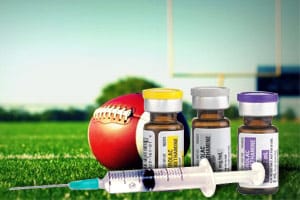
It’s the height of the college football bowl season and as the hundreds of players take the field to battle for school pride and a potential future playing the sport professionally for millions of dollars, many are unknowingly being put at risk of serious injuries and death … and the sport, itself, is not to […]
 It’s the height of the college football bowl season and as the hundreds of players take the field to battle for school pride and a potential future playing the sport professionally for millions of dollars, many are unknowingly being put at risk of serious injuries and death … and the sport, itself, is not to blame.
It’s the height of the college football bowl season and as the hundreds of players take the field to battle for school pride and a potential future playing the sport professionally for millions of dollars, many are unknowingly being put at risk of serious injuries and death … and the sport, itself, is not to blame.
Instead, team physicians whose job it is to keep players healthy, prevent injuries, and treat injuries when they occur, have been no-so-secretly been injecting ailing players with a hospital-strength painkiller typically reserved for post-operative patients dealing with discomfort. According to an exclusive ABC News report, many of the nation’s top colleges and universities – namely those at the height of the college football world – condone the use of injecting players with Toradol to get their star players back on the field sooner.
This practice has gone largely unnoticed but a recently filed lawsuit by one former player will likely bring this issue into the national spotlight as the football season concludes early next week with the national championship game.
Armond Armstead, a former defensive player at the iconic University of Southern California, has sued the school and the football team’s physician for injecting him with Toradol, which he believes caused him to suffer myocardial infarction, a heart attack, during his last season with USC. Armstead, now out of school, says he was never warned about the dangers of Toradol, which includes potential deadly side effects like a heart attack, liver failure, and more.
The doctor, James Tibone, told ABC in a fleeting interview that he does inject players with Toradol to manage the pain associated with playing football at that level but would not speak further about Armstead or other issues related to the lawsuit. His comments to an ABC News reporter indicate that he believes his practices to be safe.
The Black Box warning on Toradol notes that life-threatening complications arise through frequent use of the drug, something Armstead experienced first-hand as he was injected with the drug numerous times to get him back on the field sooner without feeling the effects of injuries that may have been plaguing him.
ABC found that only 4 of the more than 20 schools contacted for its report denied using Toradol. An astounding 16 schools would not comment on their use of Toradol and several more freely said they used it. The report notes that the NCAA – the governing body of college athletics in the U.S. – does not regulate the use of Toradol among its student-athletes.


